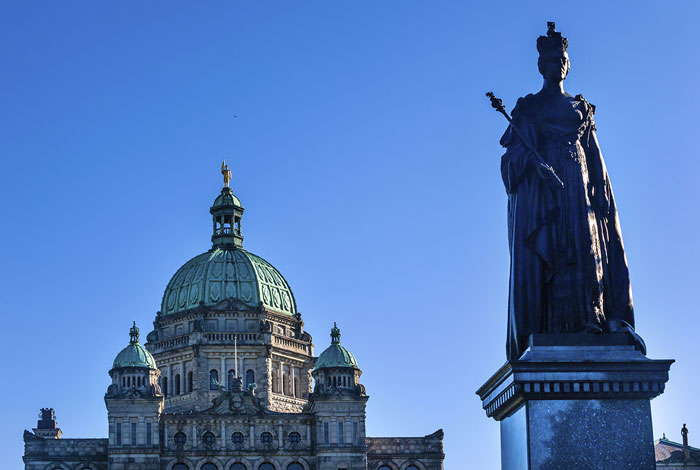 British Columbia's public postsecondary education system is one of the most comprehensive and diversified in the world. Postsecondary education in British Columbia is delivered by 25 publicly funded institutions. These include four research-intensive universities, seven teaching-intensive universities, eleven colleges, and three provincial institutes (including one Aboriginal institute). A detailed description of these institutions can be found on the Ministry of Advanced Education web site.
British Columbia's public postsecondary education system is one of the most comprehensive and diversified in the world. Postsecondary education in British Columbia is delivered by 25 publicly funded institutions. These include four research-intensive universities, seven teaching-intensive universities, eleven colleges, and three provincial institutes (including one Aboriginal institute). A detailed description of these institutions can be found on the Ministry of Advanced Education web site.
Currently, the postsecondary education sector also includes 17 private and out-of-province public academic degree-granting institutions, 16 theological institutions, and a wide range of career and language training institutions.
The Ministry of Advanced Education develops educational, professional and economic opportunities for British Columbia's learners by providing and supporting a wide range of postsecondary programs and encouraging relationships between educational institutions, business, and industry. The ministry provides provincial and national leadership and support for excellent and accessible postsecondary education that cultivates life-long learners throughout the province.
The Industry Training Authority Act was passed in 2003, establishing an authority to oversee British Columbia's industry training and apprenticeship system, to ensure that it is effective and efficient and that it meets the needs of employers and trainees. The Industry Training Authority (ITA) develops policy, performance standards, training programs, and assessment tools. It provides services for employers, training participants, and those who wish to pursue certification based on existing skills.
Private postsecondary institutions have a long history of offering educational programs in British Columbia. Under the Degree Authorization Act (DAA), private and out-of-province postsecondary institutions may apply for ministerial consent to offer and advertise degree programs, grant degrees, and use the word "university" in the province. Under the DAA, private postsecondary institutions and public postsecondary institutions from other jurisdictions are required to undergo a quality assessment process in order to obtain ministerial consent. As a matter of policy, British Columbia public institutions seeking approval to offer new degree programs must undergo the same quality assessment process. Information on institutions authorized under the DAA, is available on the Ministry website.
 Private career training institutions in British Columbia are overseen by the Private Training Institutions Branch, under the Private Training Act. It oversees the mandatory registration and voluntary accreditation of private career training institutions in the province. Institutions providing career training of 40 hours or more instruction and requesting $1,000 or more tuition are required to register. Institutions not required to register may do so on a voluntary basis. It is also responsible for managing the Student Training Completion Fund, which provides tuition protection for students if their school closes before they have completed their program of study or if the institution has made representation to the student which was materially different from the actual services or instruction provided. Information on private career institutions registered and accredited with is available on their website.
Private career training institutions in British Columbia are overseen by the Private Training Institutions Branch, under the Private Training Act. It oversees the mandatory registration and voluntary accreditation of private career training institutions in the province. Institutions providing career training of 40 hours or more instruction and requesting $1,000 or more tuition are required to register. Institutions not required to register may do so on a voluntary basis. It is also responsible for managing the Student Training Completion Fund, which provides tuition protection for students if their school closes before they have completed their program of study or if the institution has made representation to the student which was materially different from the actual services or instruction provided. Information on private career institutions registered and accredited with is available on their website.
There are approximately 320 registered private career training institutions in British Columbia, of which almost 160 are accredited. Registration ensures consumer protection and basic education standards to students enrolled in career training programs. In order to secure accreditation with the Private Training Institutions Branch, institutions undergo a rigorous quality assurance process. Institutions provide a range of education choices for students, offering a diverse range of career training options from information technology, business administration, and hospitality services to film production, flight training, and horticulture studies.
Presently there are sixteen institutions established in BC with statutory authority under a Private Act to grant theological degrees only. Theological degree programs provide education in theological studies or lead to religious occupations. These programs do not prepare students for the more general education that is recognized by the broader educational community and society as being equivalent to programs offered by institutions with programs that have a secular degree content and designation. Institutions offering only theological degree programs are exempt from the DAAand are not subject to government oversight. However, theological institutions wishing to provide academic degree programs are subject to the DAA and must apply for ministerial consent and undergo the quality assurance process and meet the established criteria. Currently, two institutions (Trinity Western University and Seminary of Christ the King) also have authority to grant certain academic degrees.
Private language (or ESL) schools that do not offer career training programs or grant degrees do not fall under any legislative or regulatory framework in British Columbia.
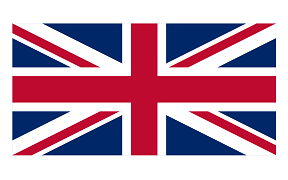 English
English Français
Français 日本語
日本語 中文
中文 한국어
한국어 Русский
Русский

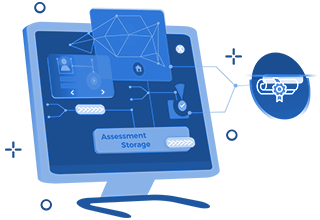

 British Columbia's public postsecondary education system is one of the most comprehensive and diversified in the world. Postsecondary education in British Columbia is delivered by 25 publicly funded institutions. These include four research-intensive universities, seven teaching-intensive universities, eleven colleges, and three provincial institutes (including one Aboriginal institute). A detailed description of these institutions can be found on the
British Columbia's public postsecondary education system is one of the most comprehensive and diversified in the world. Postsecondary education in British Columbia is delivered by 25 publicly funded institutions. These include four research-intensive universities, seven teaching-intensive universities, eleven colleges, and three provincial institutes (including one Aboriginal institute). A detailed description of these institutions can be found on the  Private career training institutions in British Columbia are overseen by the
Private career training institutions in British Columbia are overseen by the  British Columbia's postsecondary education system has expanded significantly since its beginnings early in the 20th century. The University of British Columbia (UBC), officially incorporated in 1908, operated as the province's only public university until 1963. That year, the Province passed legislation to establish Simon Fraser University (SFU), which opened in 1965. The University of Victoria (UVic) was founded in 1903 as Victoria College, an affiliate of McGill University in Montreal. The University received degree-granting status and moved to its Gordon Head campus in 1963.
British Columbia's postsecondary education system has expanded significantly since its beginnings early in the 20th century. The University of British Columbia (UBC), officially incorporated in 1908, operated as the province's only public university until 1963. That year, the Province passed legislation to establish Simon Fraser University (SFU), which opened in 1965. The University of Victoria (UVic) was founded in 1903 as Victoria College, an affiliate of McGill University in Montreal. The University received degree-granting status and moved to its Gordon Head campus in 1963. In March 2004, government announced that it would dissolve Okanagan University College to establish a new institution in the region - Okanagan College (OC) - as well as a new university campus - University of British Columbian Okanagan (UBCO) - with the first students entering UBCO and OC in September 2005.
In March 2004, government announced that it would dissolve Okanagan University College to establish a new institution in the region - Okanagan College (OC) - as well as a new university campus - University of British Columbian Okanagan (UBCO) - with the first students entering UBCO and OC in September 2005. TheUniversity Act governs most of the public universities. The research-intensive universities have the mandate to provide undergraduate and graduate instruction in a wide range of disciplines and to establish facilities for the pursuit of original research. The research and scholarly activities undertaken by these universities are global in scope.
TheUniversity Act governs most of the public universities. The research-intensive universities have the mandate to provide undergraduate and graduate instruction in a wide range of disciplines and to establish facilities for the pursuit of original research. The research and scholarly activities undertaken by these universities are global in scope.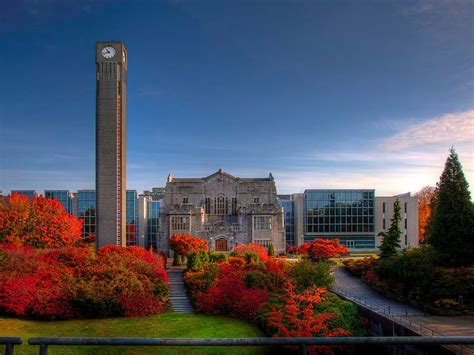 Most of British Columbia's teaching-intensive universities, colleges, and institutes provide, to varying degrees, adult basic education, developmental education, apprenticeship training, career, technical and vocational training, and university transfer programs to full-time and part-time learners. Programs are designed to meet the specific educational, training, and upgrading needs of individuals and local communities, and lead to certificates, diplomas, and two-year associate degrees. In 2003, legislative amendments expanded the mandate of colleges to allow them to offer baccalaureate degrees with an applied focus, and expanded the mandate of institutes to offer masters degrees with an applied focus (in addition to baccalaureate degrees). Public post-secondary institutions also offer a variety of credit and non-credit courses through continuing education and contract training.
Most of British Columbia's teaching-intensive universities, colleges, and institutes provide, to varying degrees, adult basic education, developmental education, apprenticeship training, career, technical and vocational training, and university transfer programs to full-time and part-time learners. Programs are designed to meet the specific educational, training, and upgrading needs of individuals and local communities, and lead to certificates, diplomas, and two-year associate degrees. In 2003, legislative amendments expanded the mandate of colleges to allow them to offer baccalaureate degrees with an applied focus, and expanded the mandate of institutes to offer masters degrees with an applied focus (in addition to baccalaureate degrees). Public post-secondary institutions also offer a variety of credit and non-credit courses through continuing education and contract training. Each of the province's postsecondary institutions sets its own admission requirements. Applicants are generally offered admission based on their academic qualifications, although other criteria may be used to select students for some programs. Generally, successful graduation from high school, with the required academic prerequisites, is needed for admission to programs offered by universities, colleges, and institutes. Special consideration may be given to mature applicants.
Each of the province's postsecondary institutions sets its own admission requirements. Applicants are generally offered admission based on their academic qualifications, although other criteria may be used to select students for some programs. Generally, successful graduation from high school, with the required academic prerequisites, is needed for admission to programs offered by universities, colleges, and institutes. Special consideration may be given to mature applicants.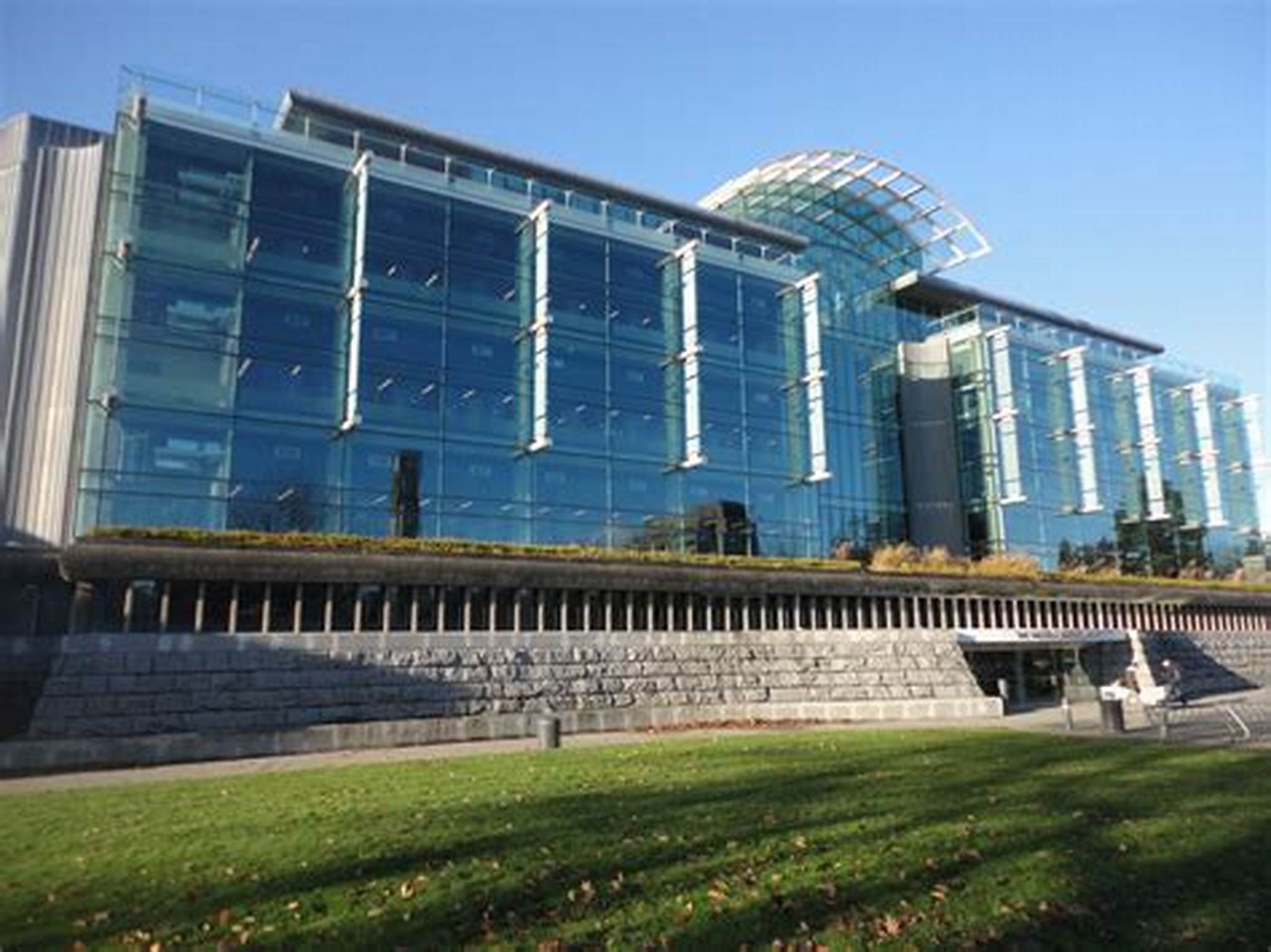 The British Columbia government's approach to tuition fees has been to align the costs of public postsecondary education with the benefits provided, which implies appropriately sharing costs between students, institutions, government and the private sector.
The British Columbia government's approach to tuition fees has been to align the costs of public postsecondary education with the benefits provided, which implies appropriately sharing costs between students, institutions, government and the private sector.






